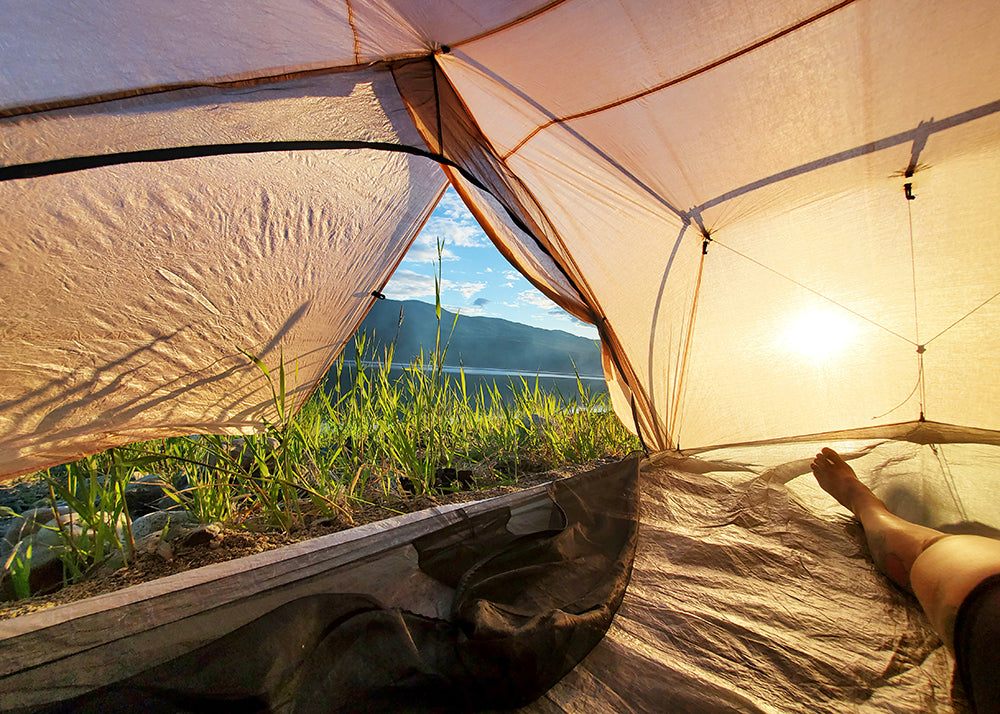
Getting a good night's sleep while out on an overnight hike can be a big challenge. From finding your sweet spot on a sleeping pad, to setting up your shelter in a new location with varying terrain, to considering weather and wildlife, to making sure you have the proper sleep attire for the changing conditions: it’s no wonder getting the best rest can be elusive.
Yet, we all know that proper sleep is essential for optimal health and well-being. A good night's sleep aids in physical, mental, and emotional performance on trail, while boosting the body's ability to heal and recover after a big day’s effort. Good sleep not only increases our enjoyment of the adventure by supporting cognitive function, mental resilience, and increasing healthy hormone production that bolsters good moods, but it also allows for healthy movement patterns and clear decision making, which mitigates the risk for injury while out and about.
With advancements in modern science and technology, there are many fancy gizmos and gadgets that promise to improve your sleep quality, but this list explores a few options that don’t require spending a bunch of extra money on fancy gear or attaching electrodes to your brain on the summit of a mountain.
Let’s get into it...
Sunshine Before Screen Time
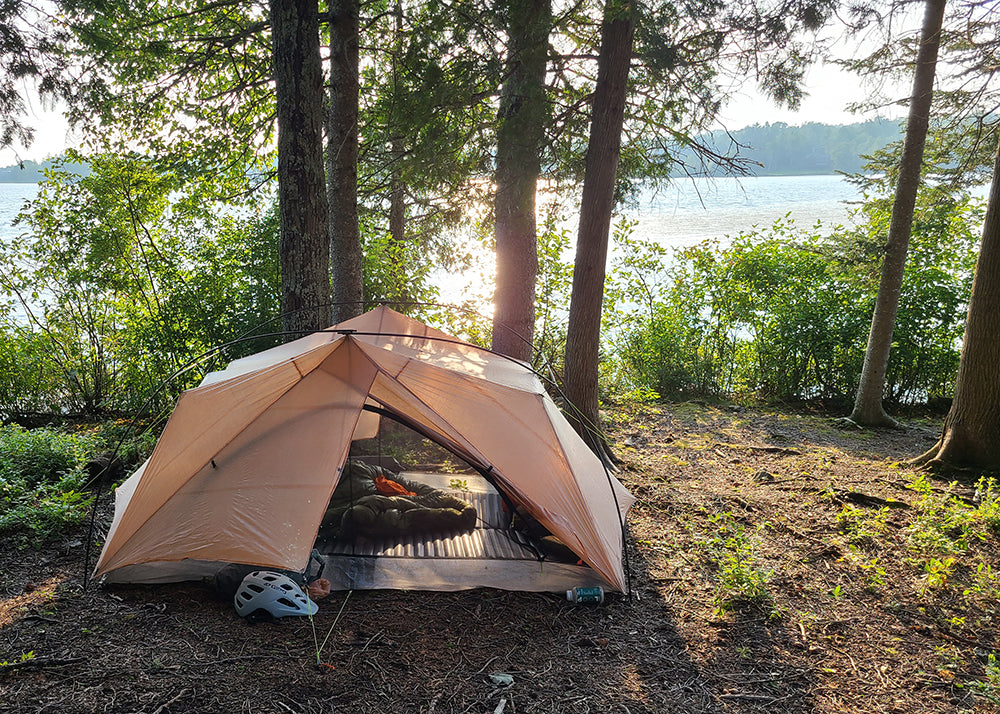
Believe it or not, getting a good night's sleep starts first thing in the morning and is supported by every decision you make throughout the day. Setting our circadian rhythm by exposing ourselves to natural light upon waking is one way to set our "sleep clock" so our body knows when to start producing or suppressing melatonin, the chemical responsible for regulating our sleep-wake cycles.
Exposure to natural light in the AM not only increases alertness and boosts energy levels, it also suppresses the production of melatonin in the morning, which will then increase it later in the day, making it easier to fall asleep. This may sound easy to do when sleeping outdoors when we can roll out of our sleeping bag and into the morning light, but what most of us do first is reach for our phones.
However, getting screen time before sunshine actually increases our exposure to concentrated blue light which can interfere with melatonin production, and even though it’s early in the day, can make it harder to fall asleep at night. Beyond blue light, the stimulation and arousal we get from our morning scrolling can also increase stress and anxiety which we carry with us through the day.
Becoming more mindful of our screen time and phone usage in the mornings and evenings, (both on and off the trail) can help us set up healthy boundaries that will support our well-being, balance our circadian rhythms, and promote healthy hormone production which will give us a better chance of getting a good night's sleep.
Eating Enough Food
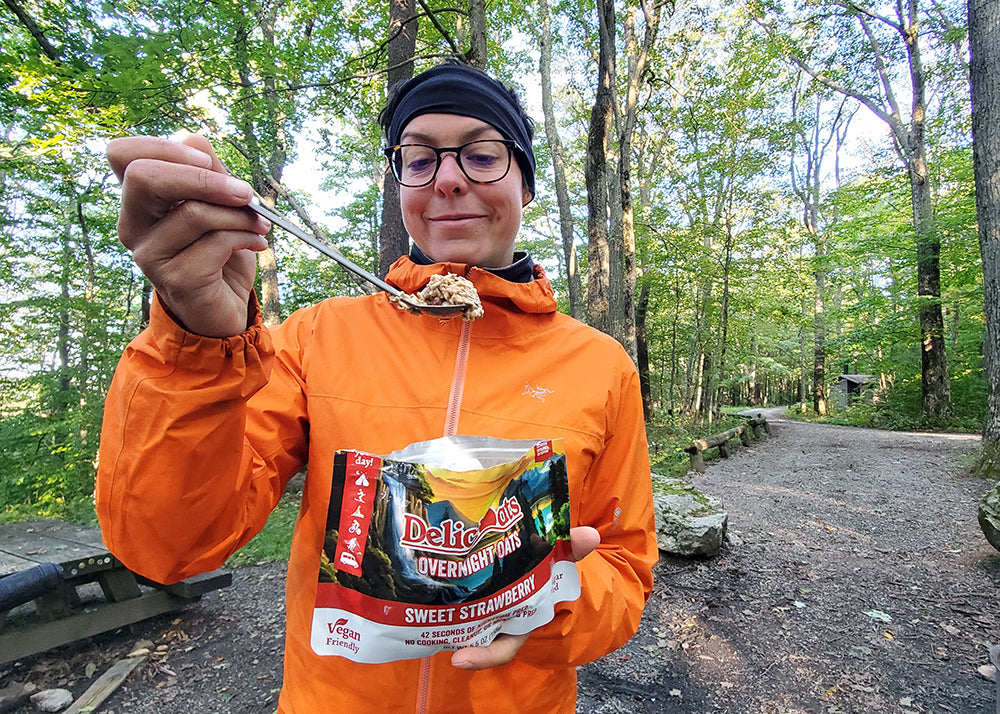
We tend to burn more calories when we are out adventuring than when we are living our regular everyday lives, which means we need to make up for the extra energy expenditure by consuming more food than we would on a usual day. How much more you need to eat varies from person to person and depends on the terrain, intensity and duration of your hike, the weight of your gear, and your body’s individual needs based on your metabolic rate.
Rough estimates suggest that adding 200 - 300 more calories per hour of hiking could be the sweet spot, but some will need far more, and others, much less. Tuning in to your hunger signals is often a good way to judge if you need an extra snack or two, so it’s always a good idea to pack more food than you think you will need (which is also a good idea in case of an emergency).
Not consuming enough calories throughout the day can not only make you cranky, but can negatively impact your body's ability to regulate the hormones that play a role in sleep, like melatonin and cortisol. Ever find yourself lying in your tent exhausted, but somehow wide awake, worrying about the seemingly silliest things? That’s high cortisol at work. Or do you wake up in the middle of the night and find it hard to fall back asleep? That can be a result of low blood sugar. You might also find yourself unable to fall asleep because you are unusually chilled, especially on brisk nights, because the body doesn’t have enough calories to recover and repair and also focus on keeping you warm.
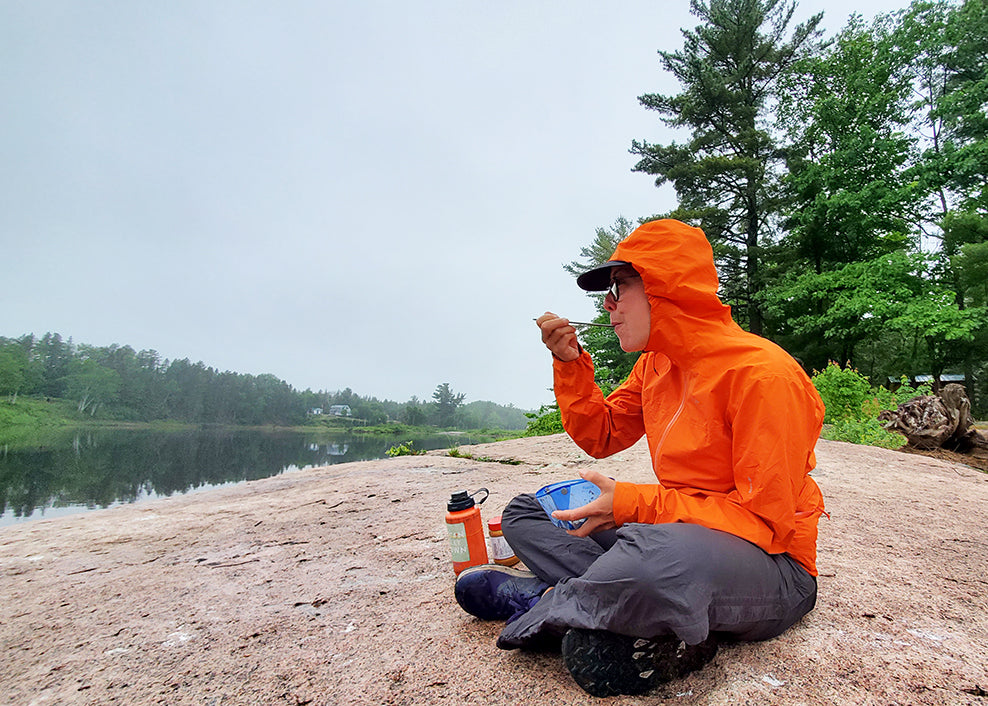
Complex carbohydrates (like starchy vegetables and tubers), whole grains (like quinoa, oats, or rice), and legumes (like beans and lentils) can help regulate the stress hormone cortisol. Thus it can be beneficial for most people to ensure they have a serving of complex carbohydrates in the evening with their last meal. It can also be helpful to give yourself two to three hours of space, if possible, between your final feeding and bedtime to mitigate sleep disturbances and improve digestion.
A final word on consumption habits before bed: generally speaking, caffeine has a 12 hour half-life, meaning that 12 hours after you've ingested it, there is still half the amount of caffeine swirling around in your bloodstream. For those of us with caffeine sensitivity, this lasts even longer and has deleterious effects on your sleep, as does consuming alcohol (full stop), and especially so close to bedtime. If you can dial these in with more mindfulness, you'll be better off for it.
Winding Down
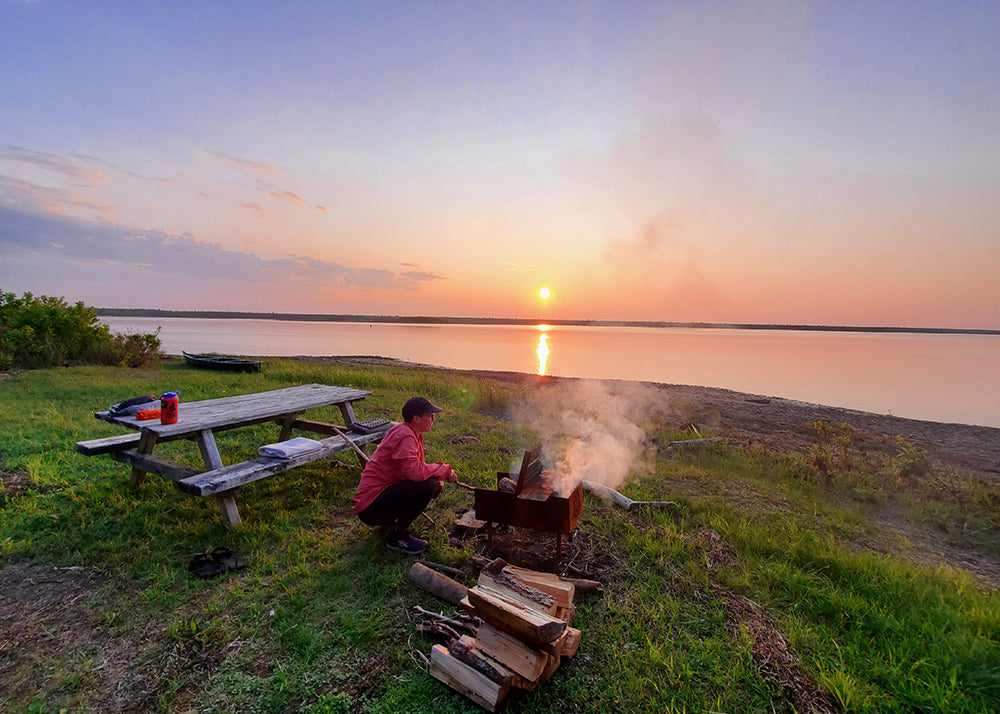
Making space to wind down at the end of the day can be extremely beneficial for getting a good night's sleep. Adventures are exciting and stimulating and can be a lot to process mentally, not to mention physically. Working a wind down routine into your daily schedule might mean you have to cut your day a bit shorter, but you’ll make up for it by feeling stronger and being able to go further faster the next day when you’re rested and recovered.
Journaling, meditating, stretching, practicing some slow breathing techniques, or simply sitting in silence while watching the campfire flicker are some free easy ways to wind down after a long day that don't add extra weight to your pack.
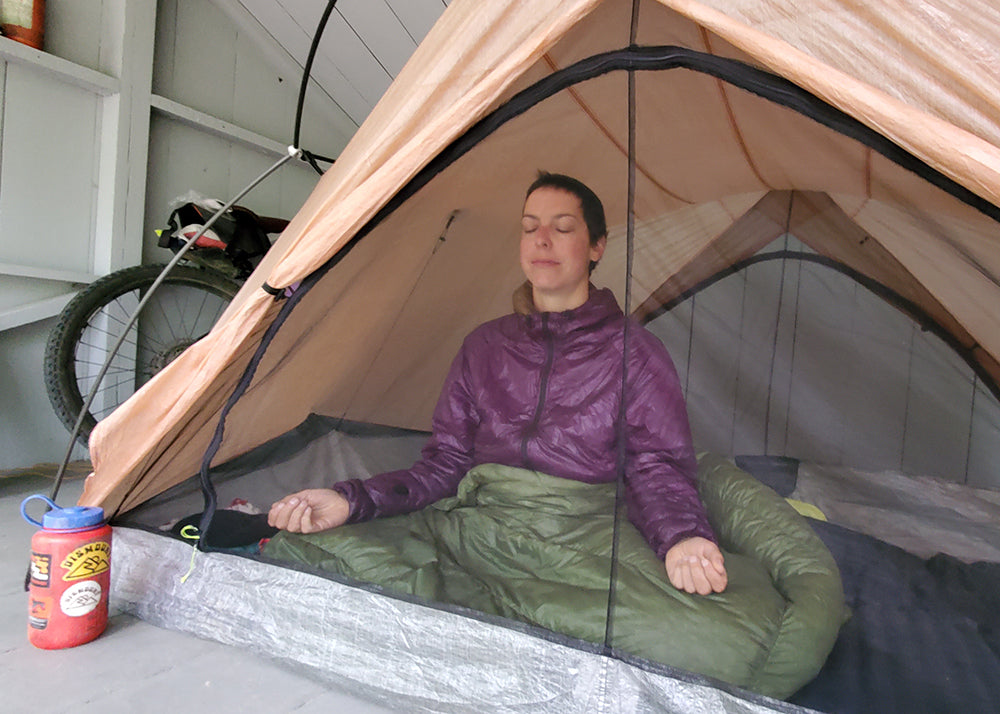
Creating this space for reflection and rest signals to your brain that you are getting ready for bed and encourages the mind to calm down, the body to relax, and causes the production of melatonin to increase and cortisol to downregulate. If you can schedule your wind down routine to happen at relatively the same time every evening, your body will begin to naturally know when to start mellowing out and letting the melatonin flow.
Dialing In Your Sleep System
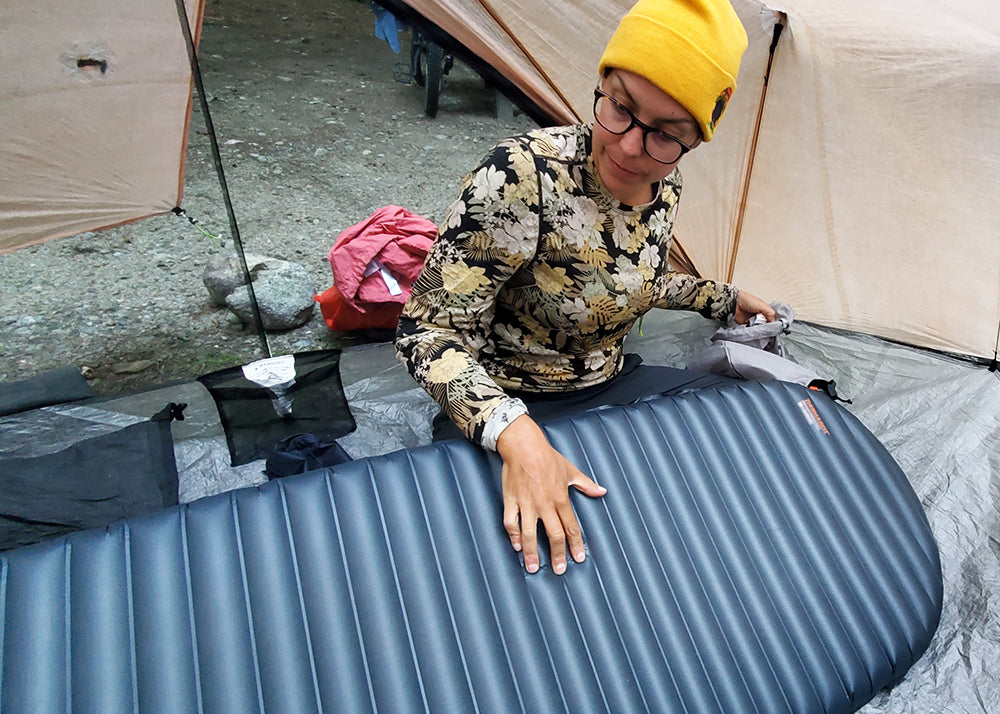
Feeling safe, comfortable, and calm in your sleep shelter can make falling and staying asleep much easier to achieve. Selecting a tent or bivy and sleeping bag or quilt that are designed for the seasonal conditions will help with temperature regulation in your sleep HQ. Choosing an inflatable sleeping pad with an appropriate width, length, and R value, or a mattress designed for you side sleepers can really improve comfort on the ground.
From there, you can personalize your set up with additional accessories. For me, upgrading to the Pillow Strap made a huge difference in my sleep comfort and quality, a worthy investment for a menial weight penalty. Many side sleepers swear by adding extra padding between their legs, a second pillow under their neck, or getting mattresses with larger side baffles to help keep their spine positioned properly throughout the night. You might have to try a few different pads and positions before you know what works best for you, and ask around to see if your side/stomach sleeping friends have any tips and tricks to offer.
Sleep Accouterments

Finding a dark, quiet, and cool place to set up your shelter is ideal, but not always possible when you’re roaming around in the great outdoors. It can be helpful to have a set of ear plugs for loud spaces and an eye mask (or article of clothing like a toque or headband) that you can pull over your eyes when camping in bright places.
Having clothing to sleep in that's well matched for the weather conditions is optimal, with merino wool being a good choice for its temperature regulating properties. If it's going to be chilly, it never hurts to have some Goosefeet Down booties or an Enlightened Equipment Torrid Hood nearby to throw on in the night to keep the heat in where you shed it most.
Being able to easily layer up or down while sleeping is useful, as is having a zipperless sleeping quilt like the Enlightened Equipment Revelation Quilt that you can easily throw open in the night if you start to sweat.
Final ZZZs
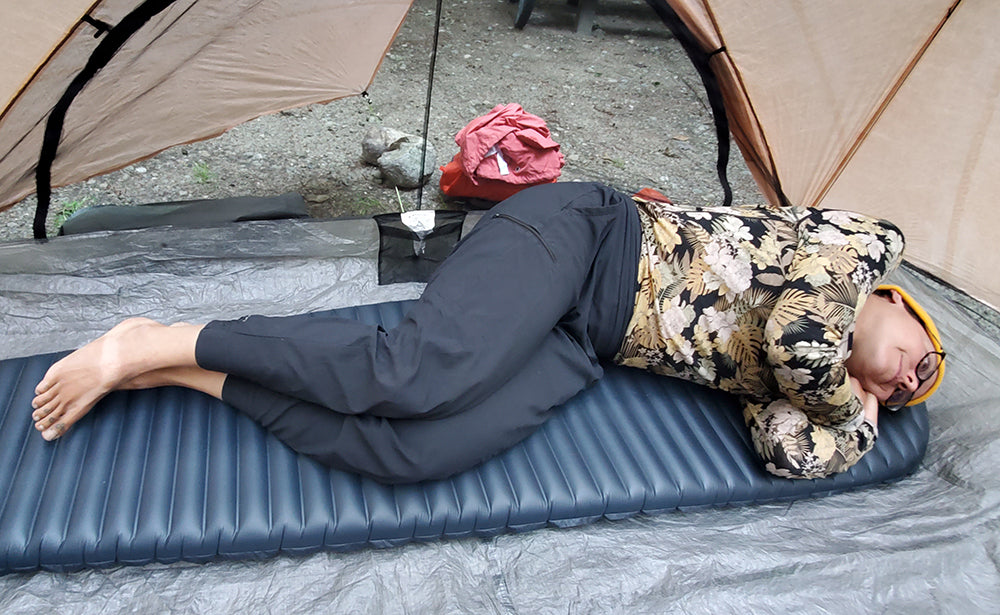
Sinking into deep sleep while out on adventures is what dreams are made of. By implementing healthy routines around sunlight, screen time, nutrition, mindfulness, and bedtime routines, as well as dialing in your sleep system and auxiliary accessories, you can be off to slumberland in no time flat and be ready for another day of adventure and excitement on the trail.
Do you have any sleep tips and tricks to share with others? Drop them in the comments below.
Ali Becker is a freelance adventure writer and narrative storyteller who shares compelling conversations about personal transformations, overcoming limitations, wellness education, and adventurous situations. You can follow her rambling adventures on Instagram at @thisisalibecker.













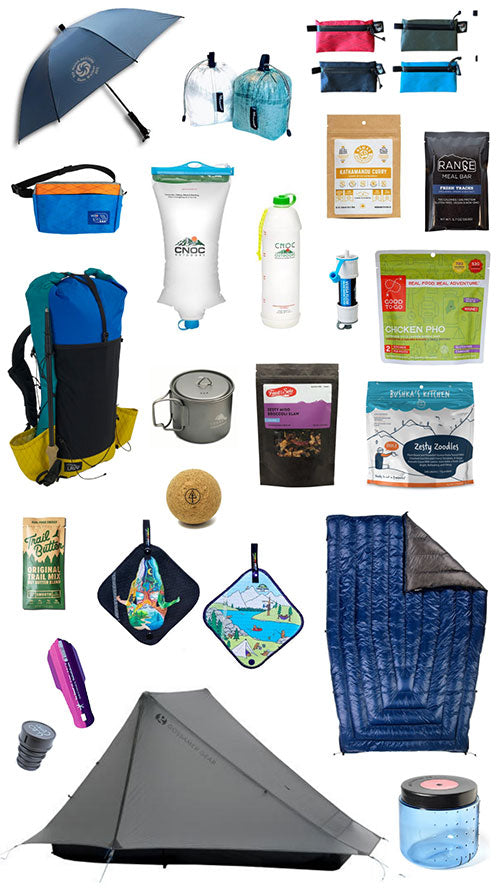
4 comments
GGG Moderator
@David, Ali’s shelter is a Zpacks Free Trio. You can read her review of it here: https://www.garagegrowngear.com/blogs/gear-reviews/zpacks-best-ultralight-tent?pos=2&_sid=e19a6fb55&ss=r
David
Hi
Nice content – thank you.
But just wondering what tent that is in the pictures?
Thank you.
Carolyn Caufman
No advice for hammockers?
(Do you keep commenters’ emails private?)
Renée
Love this, thank you for some great tips 😴😴😴